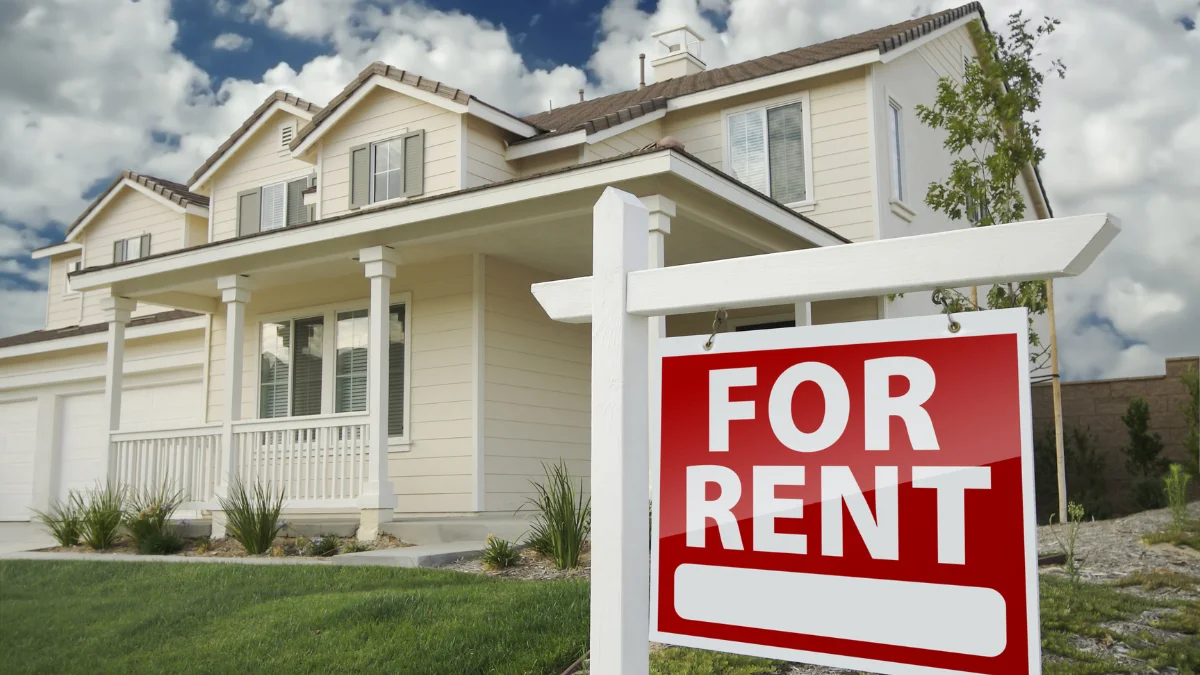So you’re looking for a new place to rent, but you’re on a budget. Who isn’t these days? Rent keeps going up while paychecks seem to stay the same. But have no fear – with some smart planning and savvy negotiating, you can find a nice rental without breaking the bank. Getting ready to search for your next home? Read on for tips to save money on rent, security deposits, fees and more. With the right approach, you can have your dream place and keep some cash in your wallet too. We’ve got your back with insider tricks from years of apartment hunting and moving. You’ll be surprised what a few simple strategies can do for your bottom line. Let’s get started!
Calculate Your Budget for Renting a Home
When renting a place to live, it’s important to determine how much you can afford to spend each month on rent and utilities. This will help guide your search and ensure you find an affordable home that won’t strain your budget.
•Calculate your monthly income. Add up your monthly earnings from your job, any freelance work or side hustles, investment dividends, etc. This is the maximum you can put towards housing costs each month.
• Determine your fixed expenses. Tally up expenses like loan payments, insurance premiums, phone/internet service, gym memberships, streaming subscriptions, and anything else you pay monthly. Subtract this amount from your monthly income.
• Factor in discretionary costs. Estimate how much you spend each month on things like food, gas, entertainment, and shopping. A good rule of thumb is to allocate no more than 30-40% of your remaining income after fixed expenses to housing costs.
• Set your rent budget range. Now you know the maximum you can afford to spend on rent and utilities while still being able to cover your other costs of living comfortably. Look for apartments or rental homes within your determined price range.
• Consider extra housing expenses. Don’t forget to account for additional costs beyond just rent, such as:
- Utilities: Electricity, gas, water, trash, etc. Ask potential landlords for estimates of average monthly utility bills.
- Renters insurance: Protect your belongings in case of events like fire, theft or natural disaster. Premiums are usually affordable, around $10-30/month.
- Parking: If you have a car, factor in any monthly parking fees for a garage or lot. Street parking may be free but not always convenient.
- Pet fees: If you have furry roommates, make sure you understand any pet rent or deposit required. These can significantly add to your total housing costs.
By determining your budget upfront, you’ll be in a good position to find a rental home that you can comfortably afford each month without worries of overspending or financial hardship. Focus on the total housing costs, not just the advertised rent, to make the best choice for your needs and budget.
Negotiate the Rent Price
When you find an place you’re interested in, it’s time to work out the details of the lease, including the rent amount. Negotiating the rent is one of the best ways to save money on your housing costs. Don’t be afraid to speak up—the worst that can happen is the landlord says no, but you might be able to knock $25, $50 or even $100 or more off the monthly rent.
Some tips for negotiating the best rent price:
- Do your research. Check sites like Rentometer, Rent.com or Apartments.com to determine the average rent range for similar properties in the neighborhood. If the landlord’s asking rent seems high compared to the average, you have a good case for negotiating it down.
- Highlight any negatives. Point out any issues with the property that might justify a lower rent, like lack of laundry facilities, an outdated kitchen or proximity to a noisy street. Offer to sign a longer lease in exchange for a lower monthly rate.
- Discuss your budget. Explain your financial situation to the landlord honestly and say the asking rent is more than you can afford. Provide details on your income and expenses to show what you can pay for rent each month. Many landlords would rather have a reliable tenant at a lower rent than an empty property.
- Offer incentives. Propose paying a larger security deposit, renters insurance or a shorter lease period in exchange for a lower monthly rent. You can also offer to handle routine maintenance or cleaning in the unit yourself. Sweetening the deal for the landlord in other ways may make them more willing to negotiate on price.
- Compromise. Be willing to meet the landlord halfway. If you want $100 off the asking rent but the landlord will only go down $50, that’s still $50 in savings each month. Take the compromise, then renegotiate in the future if needed.
Getting the best deal on your rent will allow you to save hundreds or even thousands of dollars each year on housing costs. With some preparation and persistence, you can negotiate a rent price you can feel good about.
Look for Hidden Savings When Touring Rental Homes
When you tour potential rental homes, keep an eye out for hidden ways you can save money. Even small savings here and there can add up to hundreds of dollars over the life of your lease.
See if utilities are included. Ask if heat, electricity, water, sewer, and trash collection fees are built into the rent or if you’ll pay for some or all of them separately. Paying for utilities on your own can cost $200-$500 per month or more, depending on the place. If they’re included, that’s an easy way to save.
Check for energy efficient features. See if the place has double-paned windows, LED lightbulbs, a programmable thermostat, ceiling fans, and an efficient heating/cooling system. Those features can lower your utility bills by up to 30 percent. Ask if there are any incentives for tenants to go green. Some landlords offer a discount for choosing paperless billing or a rebate for recycling.
See what’s included in the kitchen. A fully equipped kitchen can save you hundreds on essential tools and appliances. Look for basics like a stovetop, oven, microwave, refrigerator, and dishwasher. Smaller items like pots, pans, cutlery, plates, and glasses add to the value. If there are gaps, you’ll have to buy your own gear.
Ask about additional storage space. Extra storage, like a garage, attic, basement or shed can save you money on off-site storage rental fees. See if there’s enough space for items you can’t part with but don’t need daily access too.
Negotiate the best deal. Don’t be afraid to speak up and ask for a lower rent, especially if you’re willing to sign a longer lease. Point out any flaws or needed repairs to potentially knock $25-$50 off the monthly rent. Get creative—you might ask if yard care or pet fees can be waived or reduced. The worst that can happen is the landlord says no, but they may come back with a compromise. Saving even a little bit each month will add up in the long run.
Every dollar counts when renting a home. By looking for ways to cut costs on utilities, amenities, storage and the overall rent, you can save hundreds to thousands of dollars over the life of your lease. With some negotiation, you may be able to rent a nicer place for less than you expected. Keep your eyes open and don’t be afraid to speak up—your bank account will thank you!
Reduce Your Monthly Rent Payments
One of the biggest expenses in any budget is housing costs, including rent. Here are some tips to help lower your rent payments each month:
Negotiate with your landlord
If your lease is up for renewal, try negotiating with your landlord before signing a new lease. Explain that you’re a reliable tenant and would like to continue renting, but you’re hoping to get a lower rent, even if it’s only $25 to $50 less per month. Many landlords would rather negotiate than have a unit sit empty.
Pay rent on time
Paying rent on time each month shows your landlord you’re a responsible tenant. After several on-time payments, ask if they’d consider reducing your rent a small amount, such as 5% to 10% lower. Explain that you value the relationship and hope to continue renting long-term if possible. Many landlords will work with good, long-term tenants.
Consider a longer lease
Signing a longer lease, such as 18 to 24 months instead of 12 months, provides more stability for the landlord. In exchange for a longer commitment, you may be able to negotiate a lower monthly rent. Make sure any longer lease still allows you appropriate flexibility in case your needs change.
Look for ways to save on utilities
Lowering your utility bills frees up more of your budget for rent. Turn off lights and electronics when leaving a room. Run the dishwasher and washing machine only when full. Lower the thermostat in winter or raise it in summer by a few degrees. Unplug devices and chargers when not in use. All of these little changes can significantly reduce your utility costs over time.
Check with local aid groups
See if you qualify for any rent assistance programs in your area. Groups like the Salvation Army, Habitat for Humanity, and Catholic Charities often offer rent aid for those facing financial hardship. They may be able to provide grants or low-interest loans to help cover rent costs for several months while you get back on track.
With some patience and negotiation, you may be able to lower your rent over time and gain more financial breathing room each month. Keep working with your landlord as a team—together you can find a solution that benefits you both.
Save on Utilities and Other Housing Costs
When renting a new place, the monthly rent payment is only part of your housing costs. Utilities like electricity, gas, and water can add significantly to your bills. Here are some tips to keep your utility costs under control:
•Ask the landlord or property manager for the average monthly utility bills from the previous tenants. This will give you an idea of what to budget for utilities in your new place. If the bills seem high, you may want to consider a lower electricity and water usage in your daily habits to save money.
•Turn off lights, electronics, and appliances when not in use. The energy wasted from idle devices adds up significantly over time. Make it a habit to turn things off when you leave a room.
•Use Energy Star rated appliances which are more energy efficient than regular appliances. If the place you’re renting doesn’t have Energy Star appliances, you may want to ask the landlord if they’d be willing to upgrade to more efficient models, especially for major appliances like the refrigerator. Offer to split the cost of the new appliances to make it more appealing.
•Turn your thermostat up a few degrees in summer or down a few degrees in winter. Every degree lower in winter or higher in summer can save up to 3% on your heating and cooling costs.
•Run the dishwasher and washing machine only when full to maximize efficiency. This saves energy, water, and money.
• Consider bundling services like cable TV, internet, and phone with the same provider. Bundled services often come with a discounted rate. Make sure any bundle you sign up for actually saves you money versus paying for individual services.
Following these useful tips and making a few small changes to your daily habits can significantly lower your utility bills and other housing costs. Keeping more money in your pocket each month is worth the effort!
Conclusion
So there you have it – some solid ways to save money on your next apartment or home rental. Take time to research prices in your neighborhood, be strategic in your search timing, negotiate where reasonable, and always read the fine print before signing any lease. Pay attention to what’s included and not included in the rent, and consider a roommate if you want to split costs. Finding an affordable rental that still meets your needs is achievable with some savvy planning. Stay persistent in the search process and don’t settle too quickly – you could be leaving money on the table or ending up somewhere you don’t love. Use these tips to set yourself up for rental success while keeping more cash in your wallet!



